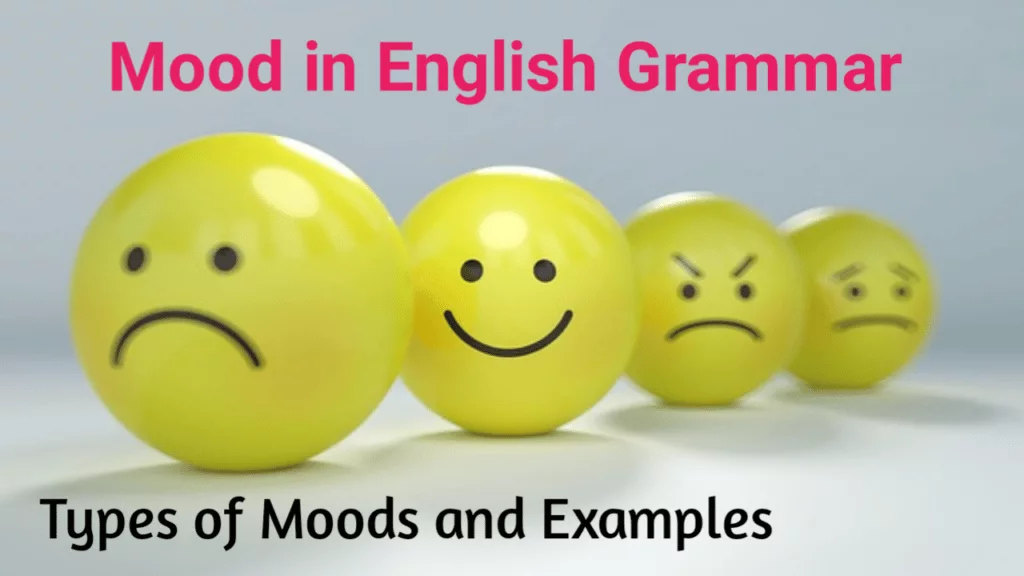
Mood in English grammar with examples. what is mood in English grammar? We are going to learning types of mood in English.
In this post we will explain Languages frequently distinguish grammatically three moods: the indicative, the imperative, and the subjunctive.
To get more video notes for competitive exams, visit our YouTube channel. This channel is very useful to learn competitive exam English grammar.
Mood in English grammar
What is mood in English grammar?
A mood shows the writer’s attitude toward what he/she is saying.
Each verb also has a mood that tells us how the action is viewed or perceived by the speaker. It indicates whether something is a fact, opinion, command, suggestion, request, wish, hypothetical (imaginary) situation, or uncertainty.
Moods are as important in writing as they are in our lives because they provide perspective. In English the three primary moods are indicative, imperative, and subjunctive.
| 1. Indicative mood: | You kicked the ball. |
| 2. Imperative mood: | Kick the ball! |
| 3. Subjunctive mood: | You would kick the ball. |
1. Indicative Mood:
This mood is used to express a fact statement. The verb in the indicative mood expresses an action as a statement of fact.
Examples:
1. Do you work in the city?
2. I got up early in the morning.
3. He is a teacher.
4. They are our friends.
5. What are you doing?
2. Imperative Mood:
This mood is used to express a command or a request statement. The tone of the sentence is a direct command, not a mild suggestion.
Examples:
1. Open the door, please.
2. Do not forget your homework.
3. At 2 o’clock, call me for lunch.
4. Sit on the sofa.
5. Give me that cookie.
types of moods in english
3. Subjunctive Mood:
Subjunctive mood indicates the possibility, wishes, or hypothetical statements. It is almost the opposite of the indicative mood. This mood usually mixes the tense of the verbs and does not follow the common usage of the tense.
- Subjunctive has some different structures from the other structures of sentences.
- Conditionals generally use the subjunctive mood.
Examples:
1. If I were in your position, I’d never leave.
2. I wish it would stop raining.
3. If I were rich, I would buy a car.
4. It may snow tomorrow.
5. I wish it were summer now.
Watch this video for the explanation of Mood in English grammar with examples.